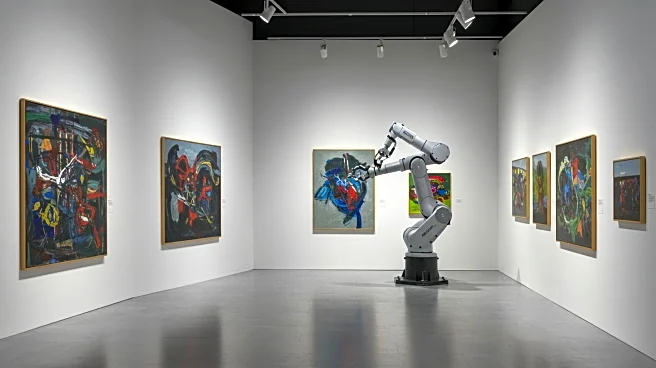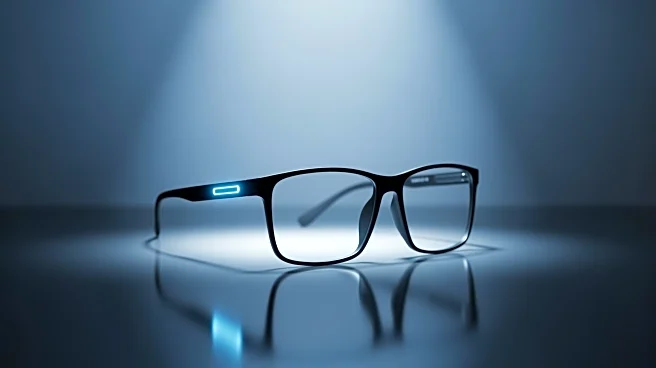What is the story about?
What's Happening?
Art dealer Michael Reid discusses the impact of artificial intelligence (AI) on the gallery business, predicting that AI will enhance productivity but initially lead to modest gains. He anticipates that AI will automate back-end processes, potentially reducing jobs in areas like bookkeeping and financial administration. Reid emphasizes the need for creative businesses to demand wisdom and strategic insight from their financial human resources.
Why It's Important?
AI's integration into art galleries represents a significant shift in how creative businesses operate, potentially leading to job reductions and changes in workforce dynamics. This transformation could streamline operations and improve efficiency, but it also raises concerns about job security and the need for employees to adapt to new roles. The broader impact of AI on the art industry could influence how galleries manage their collections and engage with audiences.
What's Next?
Art galleries and creative businesses will need to navigate the challenges of AI integration, balancing automation with the need for human insight and creativity. As AI systems develop, galleries may explore new business models and strategies to leverage technology while maintaining artistic integrity. The industry will likely see increased collaboration between technologists and artists to harness AI's potential.
Beyond the Headlines
The use of AI in art galleries prompts discussions on the ethical implications of automation and the value of human creativity. It challenges traditional notions of authorship and artistic expression, potentially reshaping the cultural landscape and how art is perceived and valued.
















